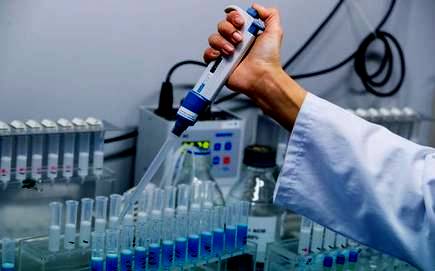COVID-19 Tests: Odisha High On Numbers, Low On Result Accuracy!

Bhubaneswar: Odisha conducted over 50,000 COVID-19 tests for the fifth consecutive day on Wednesday.
Of the 53,478 samples tested in the last 24 hours, 47,512 were rapid antigen tests (RATs) followed by RT-PCR (5,849) and Truenat (117).
Data for the previous four days:
The data shows that Odisha has become heavily reliant on RATs (90 per cent), which according to experts are not as reliable as the “gold standard” of testing, RT-PCR technology. As a result, it can end up skewing crucial data that could hamper the state’s fight to contain the virus.
RATs is faster and cheaper, but have an accuracy range of only 50 to 80 per cent. It gives a substantial number of ‘false negatives’ when a person could actually be positive for the viral disease.
Tamil Nadu had stopped conducting antigen tests due to the low accuracy rate.
While Odisha took three months to conduct the first two lakh tests (all RT-PCR), over 2.60 lakh samples have been tested in just five days with only 12 per cent of them through RT-PCR.
Amid the rising COVID-19 cases, health experts and virologists have termed the efforts of the state government misdirected amid the surge in COVID-19 cases.
EXPERTS SAY
A former scientist at the National Institute of Immunology, New Delhi, Satyajit Rath, told the Business Standard that some positive cases could remain undetected as antigen tests are not sensitive enough.
“The problem is we are saying there is a certain percentage of positivity in testing and as positivity in testing goes down, we may feel that we have begun to flatten the curve,” Have we really? Because if we have shifted to what is possibly a less sensitive test, like antigen testing, then the reduction in the percentage of test positives can simply be because of this,” Rath said.
Virologist Dr T Jacob John, who headed the expert panel formed by the Odisha government to tackle the JE virus outbreak in 2016, told TNIE that the containment efforts could get hampered if cases are missed.
“The states and cities, where the epidemic has matured, are doing antigen tests for the purpose of slowing down the spread. The first priority in Odisha, Jharkhand and Bihar, where the epidemic is young, should be to find out more cases and reduce the speed of spread, for which RT-PCR test is a must,” John said.
ODISHA GOVT’ CLARIFICATION
On August 12, Institute of Life Sciences (ILS) Director, Dr Ajay Parida told the media that the advantage with rapid antigen kits was that a large number of people could be screened and the positive cases could be identified and segregated.
People who have symptoms but still test negative in the antigen test, will undergo RT-PCR test, he had added.


Comments are closed.